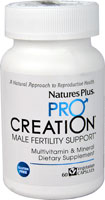For millions of American couples, infertility frustrates their efforts to bring children into the world. And in about one-third of infertility cases involving male-female couples, the problem lies with the man’s fertility, according to the U.S. Department of Health and Human Services.
The Department of Health and Human Services defines male infertility as a man’s inability, over the course of a year, to impregnate a fertile woman who’s not on birth control. For a number of reasons not limited to male infertility, roughly 12 percent of male-female couples in the U.S. run into infertility issues.
For men, the causes of infertility include:
- Erectile disfunction
- Enlargement of the veins in the scrotum
- Problems with sperm
- Blockage of the tubes that carry sperm
Risk factors for male infertility include age (over 40), heavy consumption of alcohol, drug use, diabetes, and environmental toxins such as lead and pesticides, according to the federal health department.
So, if you’re a guy who’s experiencing infertility or if the man in your life is coping with it, what can be done to improve the fertility odds? Health experts and researchers offer the following suggestions.
13 Male Fertility Tips
Maintain a healthy weight.
Higher body mass index (BMI) is linked to a decreased sperm count and decreased sperm movement, says Dr. Mark Trolice, a reproductive endocrinologist who directs Fertility CARE (Center of Assisted Reproduction & Endocrinology) in Winter Park, Florida, and authored “The Fertility Doctor’s Guide to Overcoming Infertility.”
Follow a healthy diet.
Put plenty of fruits and vegetables on your plate, as they’re rich in antioxidants, which can help improve sperm health, Trolice says. Registered dietitian nutritionist Lauren Manaker, author of “Fueling Male Fertility,” suggests adhering to the Mediterranean diet, known for its heavy emphasis on fruits, vegetables, whole grains and healthy fats. Tsao-Lin Moy, a fertility specialist with expertise in acupuncture and Chinese medicine, recommends sticking to the dietary guidelines laid out in the book “Eat to Live.”
Prevent sexually transmitted infections (STIs).
STIs like chlamydia and gonorrhea can cause infertility in men, according to Trolice.
Manage stress.
Stress not only decreases sexual function, but it also interferes with the hormones needed to produce sperm, Trolice says. “People today experience a lot of stress, and couples trying to conceive find their stress increases,” Moy says. “Stress hormones are not good for sex hormones and, in turn, will affect sperm quality.”
Engage in exercise.
Moderate physical activity can boost antioxidant enzymes, which help protect sperm, Trolice says. Moy says this can be as simple as walking at least 20 minutes a day. “Sitting all day cuts circulation to the lower body and to the groin. Unfortunately, we lead a sedentary lifestyle that also contributes to poor digestion, obesity and pain conditions like sciatica,” Moy says.
Don’t smoke.
Men who smoke cigarettes are more likely to have low sperm counts than non-smokers are, Trolice says.
Cut back on alcohol.
Heavy drinking can reduce testosterone production, triggering impotence and lower sperm counts, according to Trolice.
Use the proper lubricants during sex.
Lubricants with petroleum, propylene glycol, glycerin, parabens, silicone and nonoxynol-9 (a spermicide) can hinder the movement of sperm through a woman’s reproductive tract. Trolice suggests using a lubricant that’s sperm-friendly, glycerin-free, PHP-balanced and isotonic.
Talk to your doctor about medications.
Many prescription drugs can affect fertility, including calcium channel blockers (to lower blood pressure), tricyclic antidepressants, anti-androgens (hormone drugs) and anabolic steroids (testosterone drugs), according to Trolice.
Avoid exposure to toxins.
Exposure to pesticides, lead and other toxins can harm sperm quantity and quality, Trolice says.
Stay cool.
A rise in scrotal temperature can hamper sperm production. Wear loose-fitting underwear, avoid saunas and hot tubs, and keep your scrotum away from warm objects (including laptop computers), Trolice recommends.
Keep it quiet.
Research published in 2017 found that long-term exposure to a noisy environment, particularly at night, is tied to infertility in men.
Get help.
If male infertility continues to block the ability to conceive a child, visit with a healthcare professional who specializes in fertility. A British study published in 2016 showed that 47 percent of men and 43 percent of women who’d experienced infertility had not sought medical help.




